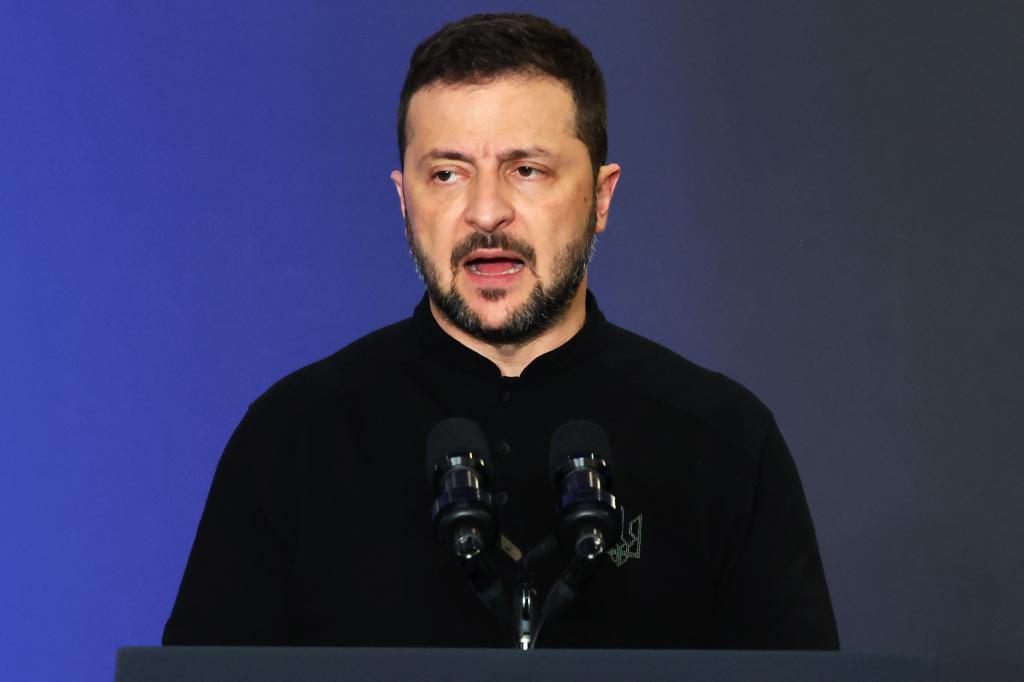The United Nations General Assembly has been caught between what Emmanuel Macron defined as "the two great wars, that of Europe and the Middle East". This Wednesday was the day of the first, that is, the one in Ukraine, with the intervention of the president of that country, Volodymyr Zelensky, in the Plenary.
Friday is the turn of the second, when Israeli Prime Minister Benjamin Netanyahu speaks, who arrives in New York amid the mobilization carried out by his own government with the aim of preparing for an invasion of southern Lebanon. Netanyahu's speech was initially scheduled for Thursday but has been postponed by a day due to the conflicts in Lebanon. The war situation has also led the Israeli Prime Minister to shorten his trip to the US, which was initially planned for four days.
The great paradox is that the United Nations, in its current situation, cannot do anything regarding these two crises. The organization is completely blocked due to the confrontation between its members and the paralysis of its main body, the Security Council, where China and Russia are on one side and the US, France, and Great Britain on the other.
In this situation, Macron's statement on Tuesday calling for "a fairer international order" has a sarcastic point, given that his country is precisely one of the five that effectively control the organization despite having approximately 3% of the population of India and a GDP 20% lower than that of India, which not only does not have a veto but also does not have a permanent presence on the Security Council.
Macron acknowledged that the Security Council should include countries like Germany and India, as well as a representation of Africa, which has 1.28 billion inhabitants and no country in the body. The French President also advocated for a reduction in the veto power. However, in neither case did he set a timeline or provide details of the reform he supported.
Zelensky himself referred to this contradiction in his speech, stating in relation to Russia that "when the aggressor exercises the veto power, the United Nations is unable to stop the war." For the Ukrainian president, his intervention at the UN is just the appetizer for the meetings he will have on Thursday with US President Joe Biden and Vice President and candidate in the November 5 elections, Kamala Harris, to whom he will present a plan to end the war. Although the plan has not been made public, it is assumed to be based on further deep attacks in Russia and new military aid from the West.
It is not clear whether Zelensky will achieve much from the United States during an election period. And even less from Europe. All Western leaders have made the necessary proclamations in favor of Ukrainian territorial integrity, but when it comes to committing to something concrete, they have not shown any signs of life. German Chancellor Olaf Scholz reiterated on Tuesday his opposition to allowing Kiev to use Western missiles to attack Russian territory, a measure that undoubtedly pleases Vladimir Putin.
Meanwhile, the United Kingdom and the United States seem stuck in an endless conversation about whether to authorize Kiev to use Storm Shadow missiles - Franco-British, but with US components - and ATACMS - manufactured by the US - on Russian territory. The main obstacle is Washington's fear, especially from Biden's National Security Advisor, Jake Sullivan, that Moscow will react with an escalation of the conflict.
Added to this is the sympathy of Trumpism towards Vladimir Putin. Zelensky indirectly addressed this issue in his speech by criticizing what he called "plans made to get by" that, he said, "not only ignore the suffering of Ukrainians but also give Putin the political space to continue the war."
It was a blatant attack on the proposals of the Republican candidate for the White House, Donald Trump, and especially his 'number two', Senator JD Vance, who has suggested that a potential peace agreement could include the creation of a demilitarized zone between the part of Ukraine conquered by Russia and the rest of the country, which in practice would 'freeze' the conflict and favor Moscow. Vladimir Putin has already successfully used this formula to seize Transnistria from Moldova and South Ossetia and Abkhazia from Georgia.
With these criticisms, it seems unlikely that Zelensky will meet with Trump, as proposed by Kiev. For the Ukrainian president, what is needed is "a just peace," not "an exit" from the war. The second option, he emphasized, will be rejected by Ukraine. The question is whether the countries supporting Ukraine are willing to continue helping it long enough and with the necessary intensity to achieve that goal.
